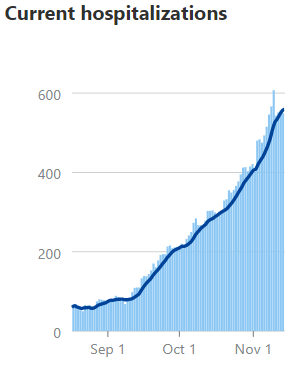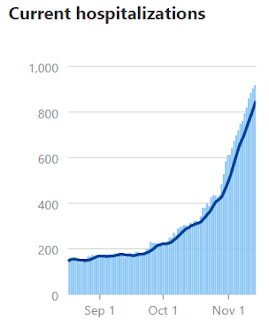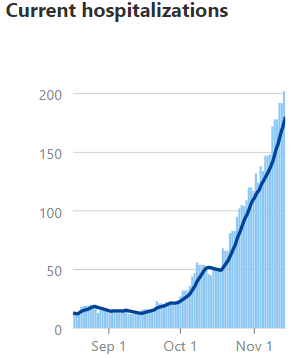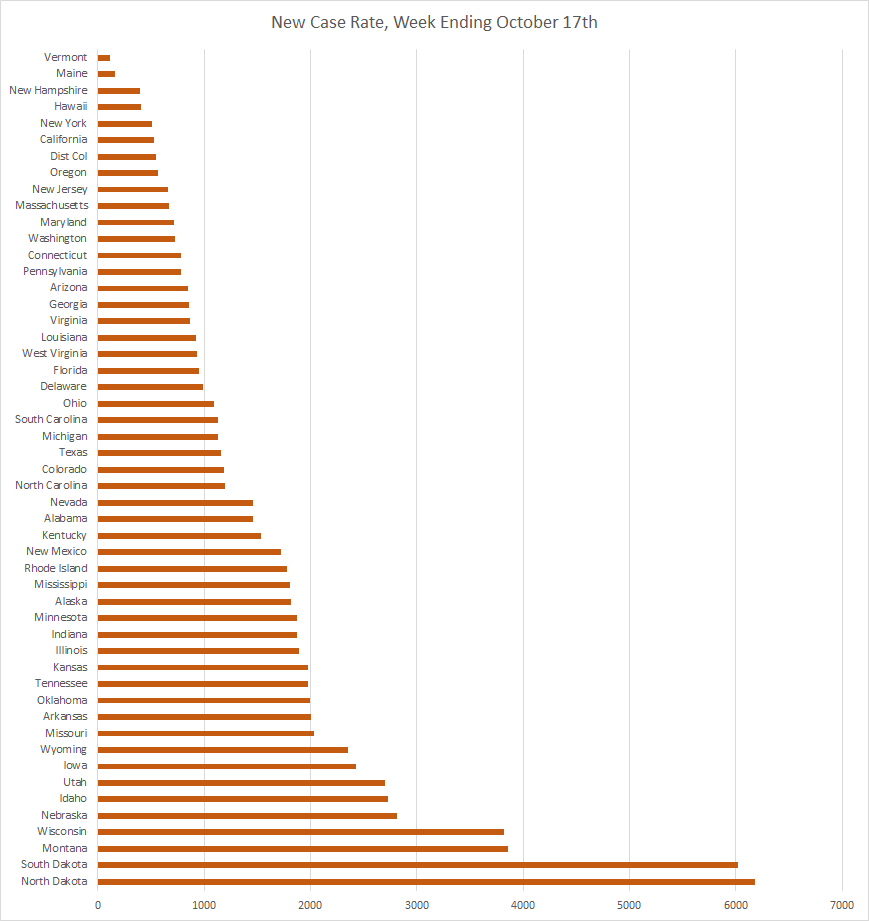This is my second entry into a critique of Robert F. Kennedy, Jr.'s book, The Real Anthony Fauci: Bill Gates, Big Pharma, and the Global War on Democracy and Public Health. The first entry can be found here. Part three can be found here. A summary of the first three posts can be found here. The first entry discussing Chapter One is here. The second entry discussing Chapter One is here.
(Note: I accidentally overwrote a long version of this post with a draft. I have endeavored to restore the long, finished version.)
Continuing with the Introduction
I left off midway through the Introduction in the middle of an attack on Fauci and his response to the COVID-19 pandemic. Perhaps it was a good place to break. Let me begin this chapter in my blog by addressing larger issues.
I began my life as a scientist from a Christian perspective. There are few more succinct summaries of science than what can be found in the First Letter to the Thessalonians, chapter 5, verse 21: Test all things. Hold fast to what is good.
Kennedy declares in his Introduction: "Science, like democracy, flourishes on skepticism toward official orthodoxies." No, this is closer to the definition of contrarianism. Skepticism toward official doctrines is only half the story. Science uses skepticism to build useful "truths" that become orthodoxies. Contrarianism does advocate testing all things, but it doesn't hold fast to what is good.
Quite often what is orthodoxy is perfectly correct (that's the goal of science). The body of knowledge of aerodynamics provides what is needed to create airplanes that fly. To claim that aerodynamics is an orthodoxy that prevents people from flapping their arms and flying off rooftops is ludicrous. That it criticizes people who believe in arm flying and censors them from science journals is a good thing.
Sometimes those orthodoxies are based on errors. Fine. Question and continue to question. But not by invective. You have to build and test your arguments to improve on those that came before. Hurling bombs to tear things down is cheap. Doing it dishonestly is not skepticism.
Invective, noun. A denunciatory or abusive discourse. (This book, denouncing with its very title.) Kennedy doesn't simply set out to construct a villain in Fauci. He seeks to create a supervillain. The following are the loaded terms he uses to describe the response to COVID and to Fauci himself in the Introduction.
From Kennedy's writing so far, let me make a prediction: the above is a wildly dishonest statement. It doesn't pass the sniff test. The actual paper "Mounting antiscience aggression in the United States" does not nearly come close to suggesting criminalization of criticism of Fauci. Fauci is not even the focus of the article. Out of 13 paragraphs in the article, Fauci is mentioned only in the context of a "Fire Fauci Act" introduced in Congress by Marjorie Taylor Greene and Representative Jim Jordan claiming Fauci is hiding something.
The article does address "expanded protection for scientists currently targeted by far-right extremism in the United States." To address this targeting, "Still another possibility is to extend federal hate-crime protections." Hate crime protections do not extend to criticism. Nowhere does it suggest that people not be allowed to criticize Fauci.
Kennedy goes back to giving Fauci superhuman status. "Dr. Fauci's direct and indirect control—through NIH, Bill & Melinda Gates Foundation, and the Wellcome Trust of some 57 percent of global biomedical research funding. . ." What is this precisely saying? "Global research funding" is a term given for US funding of projects outside of the US. Is that what he means? Or the total funding of biomedical research around the globe? Which sounds like what he is suggesting.
Fauci was in charge of NIAID, not NIH. NIAID has 15% of the budget of NIH. And then there are other US agencies involved in research which total in budget, around 80 billion (NIAID is 8% of that total.) Research America states that industry (Big Pharma for example) in the United States spent $161.8 billion in research in 2020 far more than the government or private foundations.
Fauci was the head of NIAID. That doesn't mean he single-handedly controlled its research. I have served on panels to decide which projects are funded. I never once heard a word from the top bosses which projects should be chosen or rejected. Serving on the board of Wellcome Trust or the Gates Foundation doesn't make Fauci the big decider, or as Kennedy puts it, that he had "direct or indirect control."
Fauci did have a lot of influence beyond his government position, but more like a pebble tossed into a rock pile: not nearly "control." If Fauci did have control of the COVID epidemic response, it would have gone differently. He would have put a muzzle on Trump and perhaps vaccinated Trump for rabies. I would argue that Kennedy and his skeptics had more influence in driving the COVID response disaster. People listened to him.
Fauci and Deaths Due to COVID
The Kennedys have great hair. My counter argument will probably make RFK Jr.'s stand on end. The failure of the American response to COVID is because we didn't listen to Fauci. He was undercut every step of the way. By Trump declaring the infection wasn't that bad. By declaring the infection would be gone by summer. By holding mass political rallies that served as superspreader events. Trump declared that the infection was all a political game and would disappear the day after elections.
I will examine one such superspreader event and its consequences in detail, partly because I had run the numbers myself at the time. Kristi Noem, governor of South Dakota, permitted a Harley-Davidson bikers rally in August 2020 and August 2021 attended by a total of nearly a million "vehicles." (Attendance cited by vehicles, not people. Presumably at least one person per bike.)
Back during 2020, when I had to stay at home, I took up a project of ranking states and the District of Columbia weekly by their COVID-19 statistics to see which states were doing better and which ones were doing worse, adjusted for population. The two graphs below show the increase in hospitalizations in South Dakota and, because many bikers were not local, I added North Dakota (the same were true for other bordering states. I'll go into their statistics briefly, but will mainly focus on the Dakotas). The 2020 Harley-Davidson rally took place from August 7 to 16. The delay in hospitalizations (and ultimately deaths) is because the rally merely seeded infections. The real problem came from those who became infected infecting others, and those, in turn, infecting still others. I will presented infection numbers and deaths after the hospitalizations.
 |
| South Dakota, 2020 |
 |
| North Dakota, 2020 |
I would argue that hospitalizations best describe the toll of COVID infections. Deaths can be related to improvements in therapy or negatively by having hospitals overwhelmed. Cases are often underestimated with those who are asymptomatic or who have minor symptoms not being tested and counted. Other states that border South Dakota:
 |
| Nebraska, 2020 |
 |
| Wyoming, 2020 |
 |
| Montana, 2020 |
 |
| Iowa, 2020 |
Minnesota, the one other state that bordered South Dakota, I don't have a snapshot of its hospitalizations in my archive. Here are two states over the same time period that did not have dramatic increases in hospitalizations.
 |
| Georgia, 2020 |
 |
| California, 2020 |
In the week before the South Dakota rally, South Dakota ranked 15th among states (and DC) in having the lowest rate of increase in COVID-19 infections. North Dakota was in the middle of the pack. By the week ending September 5, North and South Dakota would take up the last two places, positions they kept until the week ending November 21.
 |
| North and South Dakota, dead last, week ending October 17 |
 |
| State rankings, week of July 27, before the rally. |
Here is the beginning of the uptick of cases in South Dakota (left) and North Dakota (right). You might almost say some happened around the middle of August.
The Sturgis bike rally superspreader event is presented only as an example. There were others. So, did this motorcycle rally and other superspreader events occur because people were listening to Fauci?
By downplaying the infection, Trump created a resistance to public health care precautions and ultimately had a lot of people reject the vaccination, a vaccination that Trump's policies helped create. If we did listen to Fauci, the U.S. numbers would be like those of Japan and not closer to those of Brazil.
Furthermore, Trump gave credence to worthless therapies. I see by the chapter titles that Kennedy will discuss some of these therapies. I will deal with those arguments as they come.
A last point as I come to the end of this post. In my first entry into this series of blogs, I skipped over the Acknowledgments, suggesting that it had little to do with a critique. Now, I would like to note that Kennedy thanked eight individuals as fact checkers. That is significant. They did a poor job. His editors did a poor job. I have no fact checkers and I can usually quickly find errors (or perhaps just conscious falsities) in what he presents.
I am about halfway through the Introduction. I cannot give you a page number. The book has no page numbers. This is in spite of referring to page numbers in the index and the table of contents. It has the feel of being self-published, even though it went through Skyhorse Press.
(Note: I apologize for multiple versions of this post. I posted a long version and then accidentally overwrote with a shorter draft. In this post, I have endeavored to restore what I lost.)
Martin Hill Ortiz is the author of several novels including most recently the thriller, Floor 24.
 |
| Floor 24 Oliver-Heber Books |
"From the mob underworld to the tops of new skyscrapers, Floor 24 is a heart-thumping New York 1920's historical mystery!" - Holly Newman, bestselling author of A Chance Inquiry mystery series.












0 comments:
Post a Comment